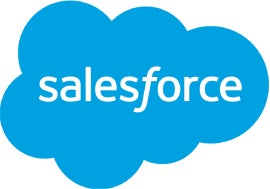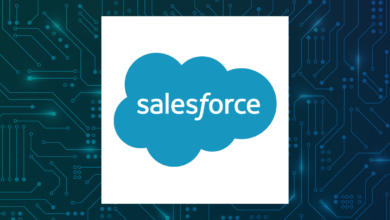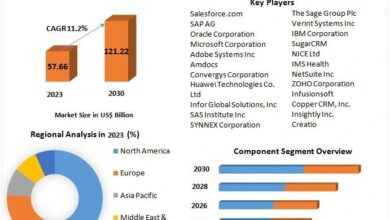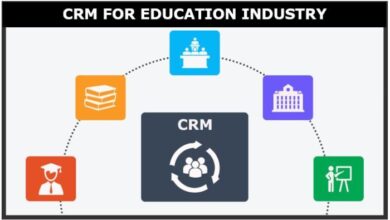CRM Pricing Considerations: 2024 Complete Guide

A customer relationship management (CRM) system gives businesses of all sizes the ability to actively engage with their customers and track the progress of those customers as they move through the company sales funnel. When used correctly, a CRM system gives businesses the ability to maintain customer satisfaction, attract new clientele and close sales more quickly.
When selecting a CRM platform for your business, one major factor to consider is the cost. CRM systems range in price and factors, such as the CRM’s included features, and your company size can also affect the cost of admission.
While CRM software can sometimes be free to access, its implementation could translate to thousands of dollars invested each year. The actual cost of the investment will depend on the number of users that require access to the CRM, along with the needs and specific requirements of your company.
How much does a CRM cost?
The cost of a CRM system can vary depending on several factors, including the CRM provider, the functionalities included, the number of users and whether it’s a cloud-based or an on-premises solution.
Many CRM providers offer subscription-based pricing, where you pay a monthly or an annual fee per user. Prices can range from as low as $10 per user per month for basic plans to several hundred dollars per user per month for more advanced features and enterprise-level solutions.
CRM providers often offer different tiers of service with varying levels of features and support. Higher-tier plans typically come with more advanced features and functionalities, and they tend to be more expensive.
For larger organizations or those with specific requirements, CRM providers may offer custom pricing plans tailored to the organization’s specifications. These custom plans often involve negotiating with the provider to determine the appropriate pricing based on the organization’s size and needs.
In addition to the base subscription cost, there may be additional costs for add-on features, integrations with other software systems, customization, training and support. It’s important to thoroughly research and evaluate different CRM options to find the best fit for your organization’s budget.
What are the key factors to consider when selecting a CRM system?
When selecting a CRM system, it’s essential to consider various factors to ensure it aligns with your organization’s objectives.
You should first assess your business needs and determine how a CRM system can support them. Look for a system that is intuitive and easy to use, as user adoption is critical to success.
Integration capabilities are also crucial, as the CRM system should seamlessly integrate with other software systems used within your organization. Data management and security features should be robust to protect sensitive customer information and ensure compliance with regulations. Mobile access is also increasingly important for enabling your team to work efficiently from anywhere.
Search for CRM systems with advanced analytics and reporting functionalities to gain important insights into customer behavior and business performance. Evaluate the training and support resources given by the CRM provider to ensure a smooth implementation process and ongoing team assistance when needed.
Finally, consider the scalability of the CRM system to accommodate future growth, along with its customization capabilities to tailor it to your company’s business goals.
How much should my business pay for a CRM for my team size?
To determine the cost of a CRM system for your team size, you’ll need to consider several factors. Begin by assessing the number of users who will need access to the CRM. Then, research CRM providers to compare their pricing structures, which often include per-user fees.
Take into account the features and functionalities required by your team and select a plan that meets your needs without unnecessary expenses. Factor in any additional costs, such as customization, integration, training and ongoing support.
Consider your budget constraints and aim for a CRM system that offers the best value for your investment. Finally, remember to anticipate the potential future growth of your team and ensure the chosen CRM can scale accordingly.
What are some popular CRM systems to consider adopting for my business?
There are numerous CRM systems available in today’s market, each with its own set of features and suitability for different types of businesses. Here are some popular CRM systems to consider:
Zoho CRM
Zoho CRM is a versatile CRM solution that can benefit businesses of various sizes, from small startups to large enterprises. Zoho offers extensive customization options, allowing users to tailor the CRM system to fit their specific business needs. Zoho includes powerful automation features such as workflow rules, macros and blueprint processes, and it provides robust lead management capabilities.
Zoho is available for $40 per user per month and can be billed annually.
Microsoft Dynamics 365

Microsoft Dynamics 365 is well suited for large enterprises with complex business requirements and diverse operations. Larger enterprises can use Dynamics 365 to streamline end-to-end business processes, integrate with existing systems and data sources and enable collaboration across all departments.
Dynamics 365 is available for $95 per user per month.
Sales Cloud

Sales Cloud is ideal for medium-sized businesses and large enterprises. These organizations can use Sales Cloud to gain a comprehensive view of their sales pipeline, customer interactions and performance metrics. Advanced features include sales forecasting, territory management, sales analytics and workflow automation.
Sales Cloud is available for $25 per user per month.
Before selecting a CRM system for your business, it’s essential to evaluate your specific requirements, budget and scalability needs. You should also consider factors such as ease of use, integration capabilities with your existing tools and the customer support offered by the CRM vendor.
FAQs
How much should I budget for CRM?
The budget for CRM implementation can vary significantly depending on various factors, such as the size of your business, the complexity of your requirements and the chosen CRM platform. Conduct thorough research, evaluate different CRM options and carefully assess your business needs before finalizing your budget.
Should a small business use a CRM?
Using a CRM system can be highly beneficial for small businesses. While implementing a CRM system requires an initial investment of time and resources, the long-term benefits for small businesses in terms of improved efficiency, customer relationships and growth potential make it a valuable investment.



